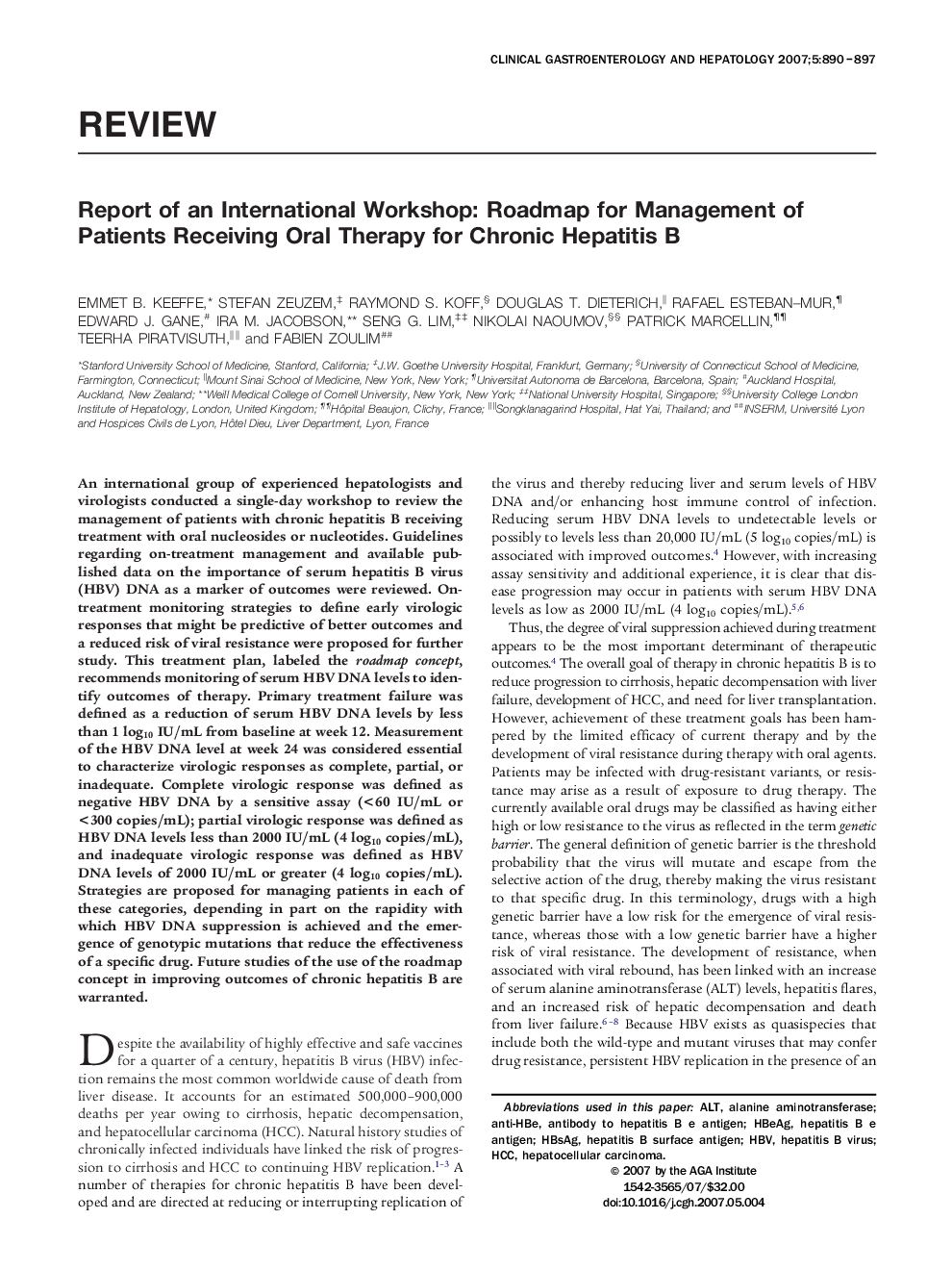| Article ID | Journal | Published Year | Pages | File Type |
|---|---|---|---|---|
| 3285243 | Clinical Gastroenterology and Hepatology | 2007 | 8 Pages |
An international group of experienced hepatologists and virologists conducted a single-day workshop to review the management of patients with chronic hepatitis B receiving treatment with oral nucleosides or nucleotides. Guidelines regarding on-treatment management and available published data on the importance of serum hepatitis B virus (HBV) DNA as a marker of outcomes were reviewed. On-treatment monitoring strategies to define early virologic responses that might be predictive of better outcomes and a reduced risk of viral resistance were proposed for further study. This treatment plan, labeled the roadmap concept, recommends monitoring of serum HBV DNA levels to identify outcomes of therapy. Primary treatment failure was defined as a reduction of serum HBV DNA levels by less than 1 log10 IU/mL from baseline at week 12. Measurement of the HBV DNA level at week 24 was considered essential to characterize virologic responses as complete, partial, or inadequate. Complete virologic response was defined as negative HBV DNA by a sensitive assay (<60 IU/mL or <300 copies/mL); partial virologic response was defined as HBV DNA levels less than 2000 IU/mL (4 log10 copies/mL), and inadequate virologic response was defined as HBV DNA levels of 2000 IU/mL or greater (4 log10 copies/mL). Strategies are proposed for managing patients in each of these categories, depending in part on the rapidity with which HBV DNA suppression is achieved and the emergence of genotypic mutations that reduce the effectiveness of a specific drug. Future studies of the use of the roadmap concept in improving outcomes of chronic hepatitis B are warranted.
